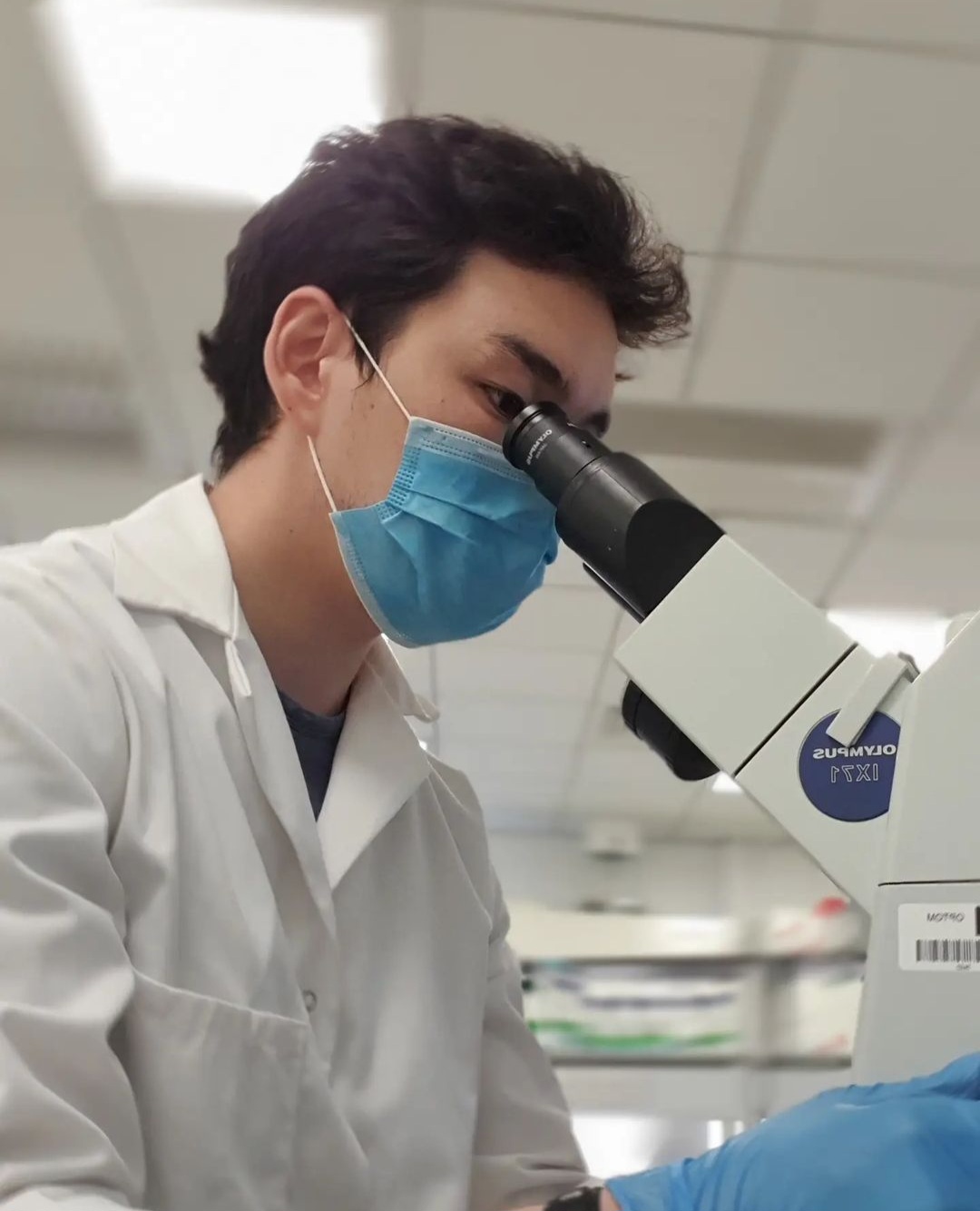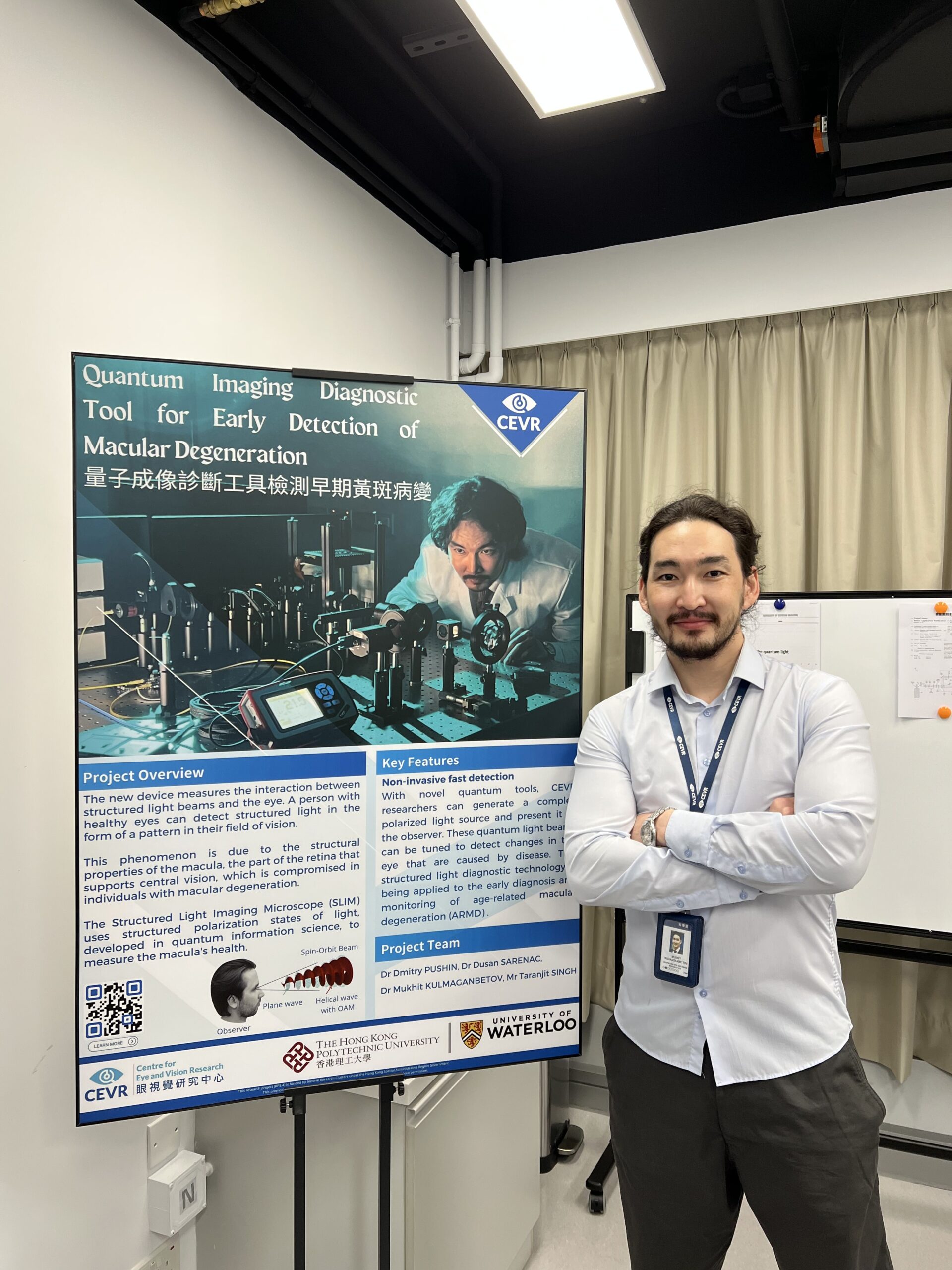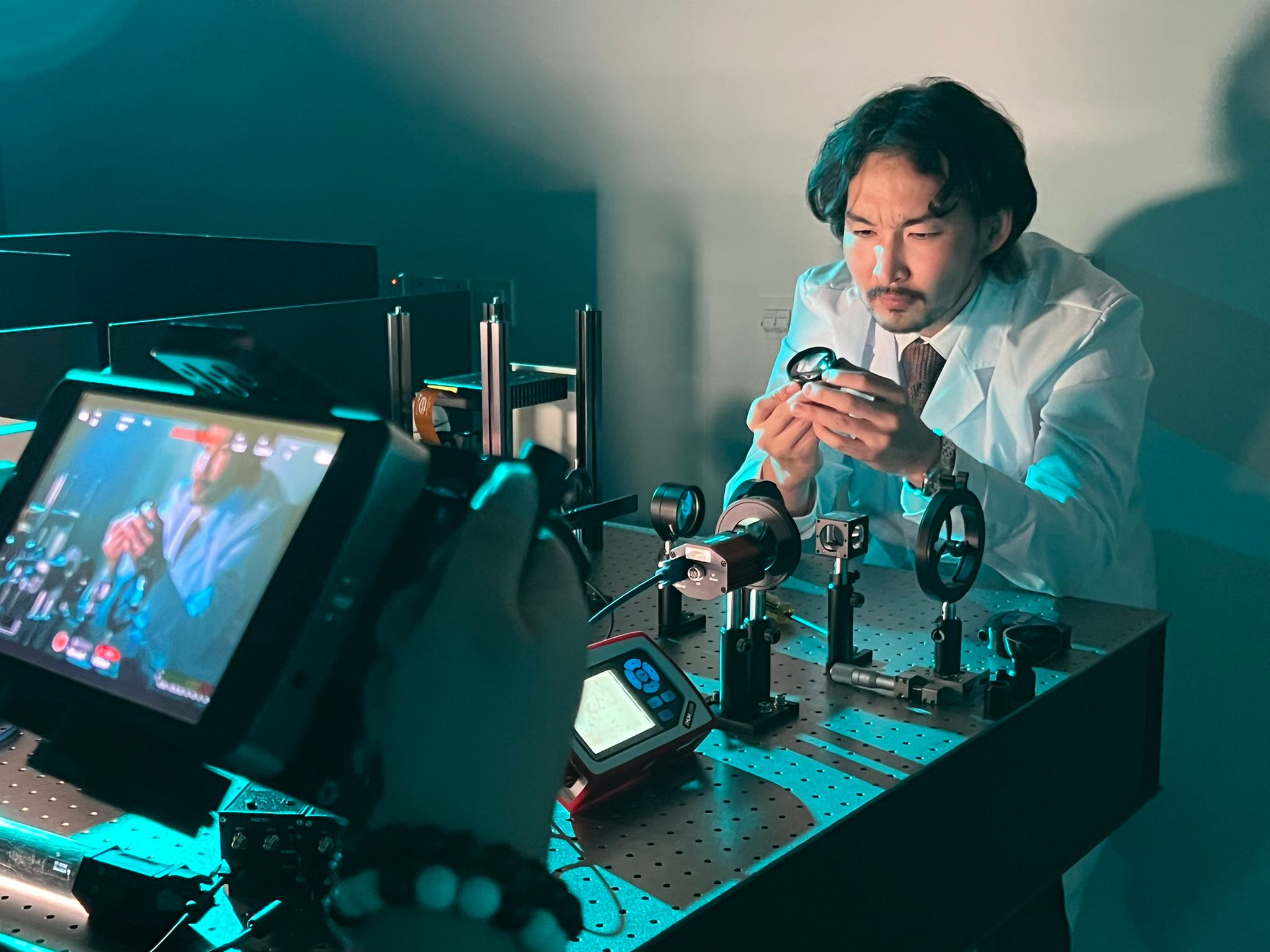ASTANA – Kazakh doctor and scientist, Mukhit Kulmaganbetov, who joined the Discrimination of Quantum States team through the Human Eye research project at the Centre for Eye and Vision Research (CEVR) in Hong Kong, seeks to investigate the human eye’s capability to differentiate between various quantum states of light. In an interview with The Astana Times, he discussed the project’s objectives, the ongoing work process, and the team’s plans for the future.

Mukhit Kulmaganbetov. Photo credit: Kulmaganbetov’s personal archive.
According to Kulmaganbetov, CEVR is a newly established institution with ambitious goals, bringing together four distinct groups: leading researchers from the University of Waterloo and The Hong Kong Polytechnic University, postdoctoral fellows from esteemed universities worldwide, local specialists with diverse educational backgrounds, and senior and junior fellows.
“For me, having completed thirteen years of continuous medical education, joining CEVR marked a crucial milestone in my professional career,” he said.
Kulmaganbetov’s family has always been the primary source of his motivation, as both of his parents and even the majority of his extended family devoted their lives to medicine.
“Growing up, I was surrounded by the medical environment. While other kids my age were playing, I was fascinated by medical equipment and literature. I remember playing with surgical scalpels and microscopes and reading medical books at a young age,” he recalled. “This early exposure greatly influenced my decision to pursue a career in medicine, driven by my own dream to save lives.”

Currently, Kulmaganbetov leads a project centered around the innovative concept of Discrimination of Quantum States by the Human Eye. Photo credit: Kulmaganbetov’s personal archive.
During his undergraduate studies and subsequent general surgery internship, he developed a fascination for ophthalmology.
“I was captivated by the intricate structure and function of the eye, as well as its potential. This experience led me to refine my mission to ‘Save lives. Saving eyes. Saving sight’”, Kulmaganbetov said.
He has been continuously deepening his research in ophthalmology during his PhD program at Cardiff University School of Optometry and Vision Sciences, where he focused on evaluating the potential of optical coherence tomography (OCT) for early detection of retinal damage, a widely used imaging technique in eye care.
However, according to Kulmaganbetov, the current market-available devices lack efficiency in this aspect as they cannot capture the optical signals resulting from changes in the organization of cellular organelles.
The OCT cannot directly image individual organelles, the collective optic signals or image textures, or provide precise measurements of neuronal integrity.
“To tackle this limitation, I developed an artificial intelligence (AI)-based diagnostic software capable of detecting subtle changes in retinal cell atrophies and apoptosis. The software was tested on artificial retinal phantoms and dissected murine retinal explants, yielding relatively accurate results,” he said.
The program was applied to the OCT scans of human eyes, including those of patients with glaucoma and age-related macular degeneration.
Members of the Institute for Quantum Computing at the University of Waterloo, Professor Dmitry Pushin and Doctor Dusan Sarenac contacted him later and offered to combine efforts to create a microscope using quantized photons by heading the newly created Hong Kong laboratory for quantum ophthalmology.

Kulmaganbetov’s project encompasses a broad range of tasks including aspects of engineering, miniaturization, and prototyping. Photo credit: Kulmaganbetov’s personal archive.
“I am currently leading a project centered around the innovative concept of Discrimination of Quantum States by the Human Eye. My responsibilities include overseeing laboratory operations, designing experiments, conducting research, and presenting our findings,” said Kulmaganbetov.
In his opinion, this position has been invaluable in developing his skills as an independent investigator and facilitator and also has ignited his enthusiasm for the collaborative potential of merging quantum technologies with vision sciences.
“Our main objective revolves around optimizing optical and imaging setups, which entails directing structured light onto the retina and accurately capturing the backscattered light,” he said. “Our future plans involve miniaturizing the setup for potential clinical use and also testing its diagnostic capabilities for macular disorders.”
Kulmaganbetov emphasized that if these trials prove successful, their next step will be to develop a commercially viable prototype with significant implications for various vision science applications.
“I am optimistic about the prospects of this project and eagerly anticipate the possibility of many rewarding years of research ahead,” he said.
At the same time, they are striving to integrate quantum technologies into the realm of vision sciences, two fields that have had limited interaction so far.
Kulmaganbetov said that the quantum realm offered vast potential for the medical world, and they were enthusiastic about studying this unexplored territory, pointing out that they had multiple hypotheses and concepts which they were eager to validate through laboratory experimentation.
“I take great pride in being part of a team of dedicated physicists and psychophysicists who are passionate, supportive, and open to new ideas,” he said.
His team’s efforts were recently recognized as they were ranked among the top ten at the Quantum for Health (Q4Health) pitch competition, hosted by the Institute for Quantum Computing in Canada.
According to Kulmaganbetov he has also contributed to the enhancement of ophthalmic care in Kazakhstan by fostering international collaborations. Under his guidance, the Kazakh Eye Research Institute has entered into cooperative agreements with several foreign institutions.
“These collaborations enable us to import the best clinical and research practices into Kazakhstan, resulting in a significant improvement in the standard of care we can provide,” he said.
Kulmaganbetov also gave pieces of advice to students who aspire to pursue a career in medicine, suggesting that they have to avoid comparing themselves to others, not hesitate to ask questions and find a balance.
“Students have to focus on their own growth and celebrate their accomplishments, no matter how big or small they may be, remembering that they were accepted because they have the qualities needed to succeed,” he said. “Finding balance means time for proper rest, nutrition, nurturing relationships, and enjoyable activities, which are crucial for your health and well-being.”
